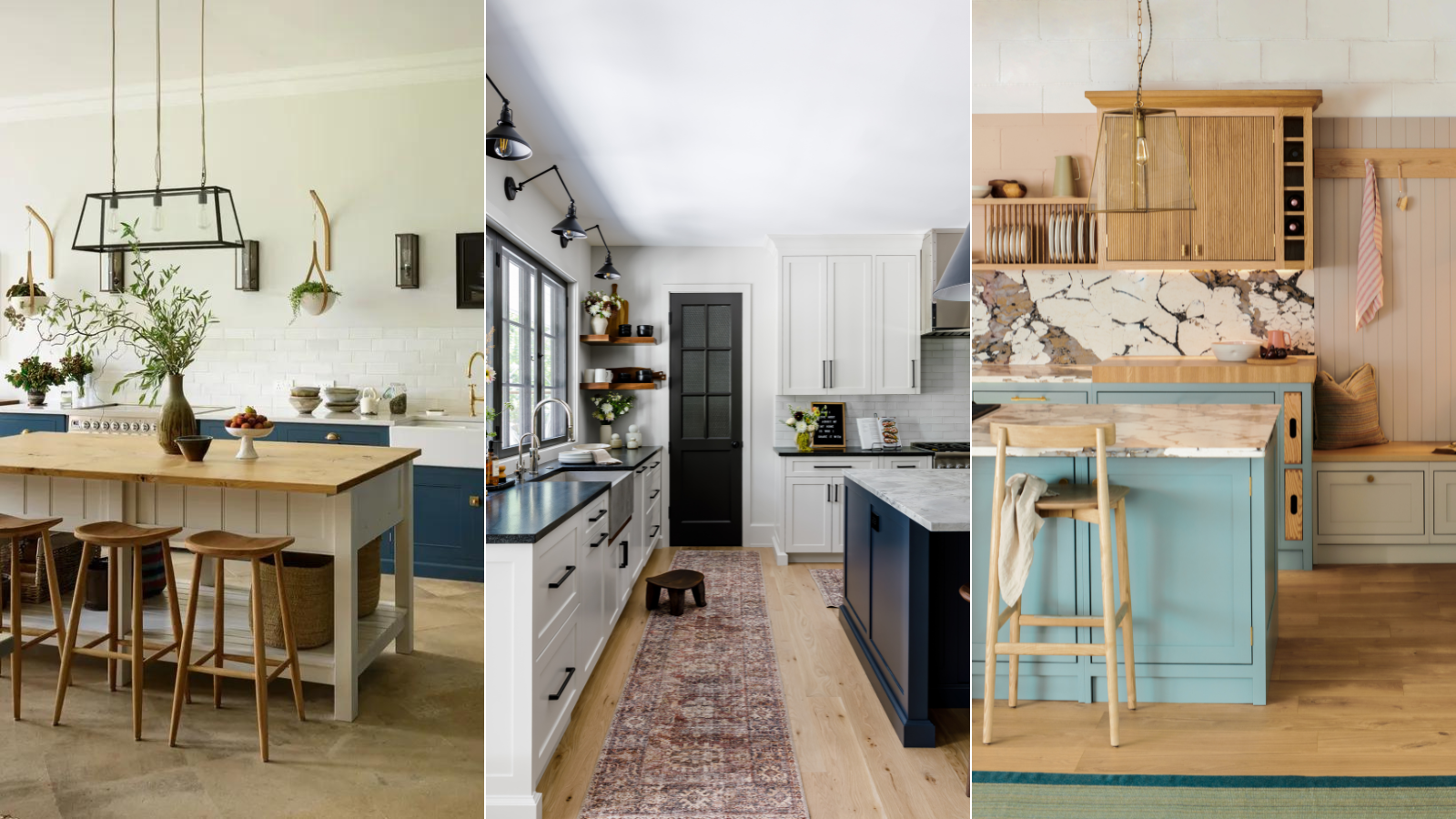
There are many ways to add interest to your kitchen, and two-tone kitchen countertops are proving to be a wonderful choice. Helping to zone different areas of the kitchen and infusing a touch of personality into your design, it's little surprise so many designers gravitate towards this feature.
Kitchen ideas have evolved to be more than just a space dedicated to cooking – they are now social areas and as visually important as the rest of the home. So, adding interest and unique features is key to a successful design, which is where two-tone kitchen countertops come into play.
But are they an enduring feature, or another trend that will quickly feel dated? Here, we speak to interior designers to find out whether they are on board with the two-tone kitchen countertop trend, and how they prefer to introduce it to a scheme.
Should you introduce two-tone kitchen countertops?
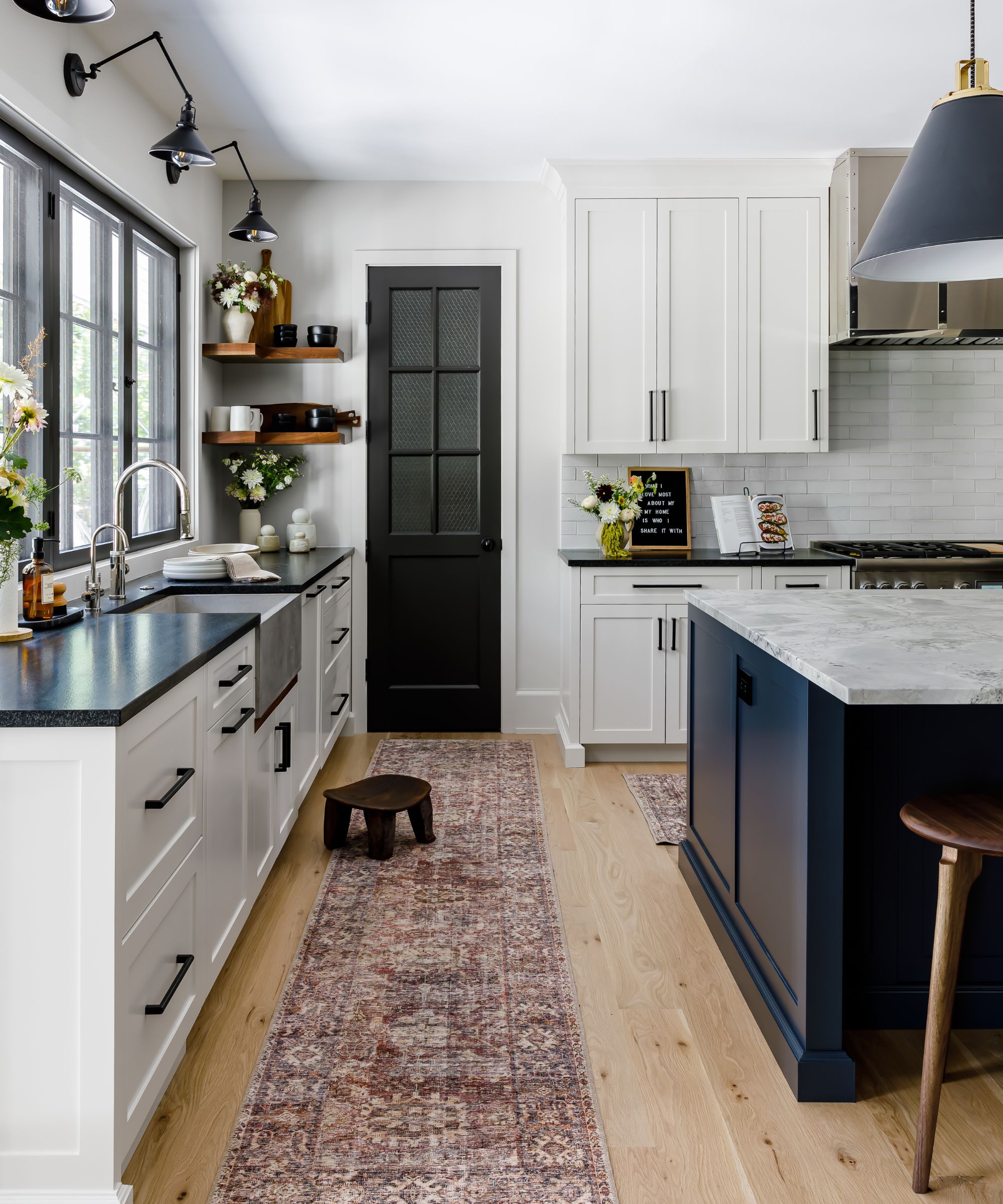
There's been a clear shift in kitchen design towards more contrast within schemes – two-tone kitchen cabinets are proving ever-popular, so why not take the same approach when it comes to countertops?
'Opting for two-tone countertops adds an edgy vibe to any space. This design choice allows for a playful exploration of tones, creating a striking contrast that elevates the room’s aesthetic,' says interior designer Becky Shea.
This style of countertop design is ideal if you want to add interest and contrast to your kitchen while maintaining an elegant finish. It's more subtle than adding contrast with cabinetry or wall colors but still adds dimension to the space.
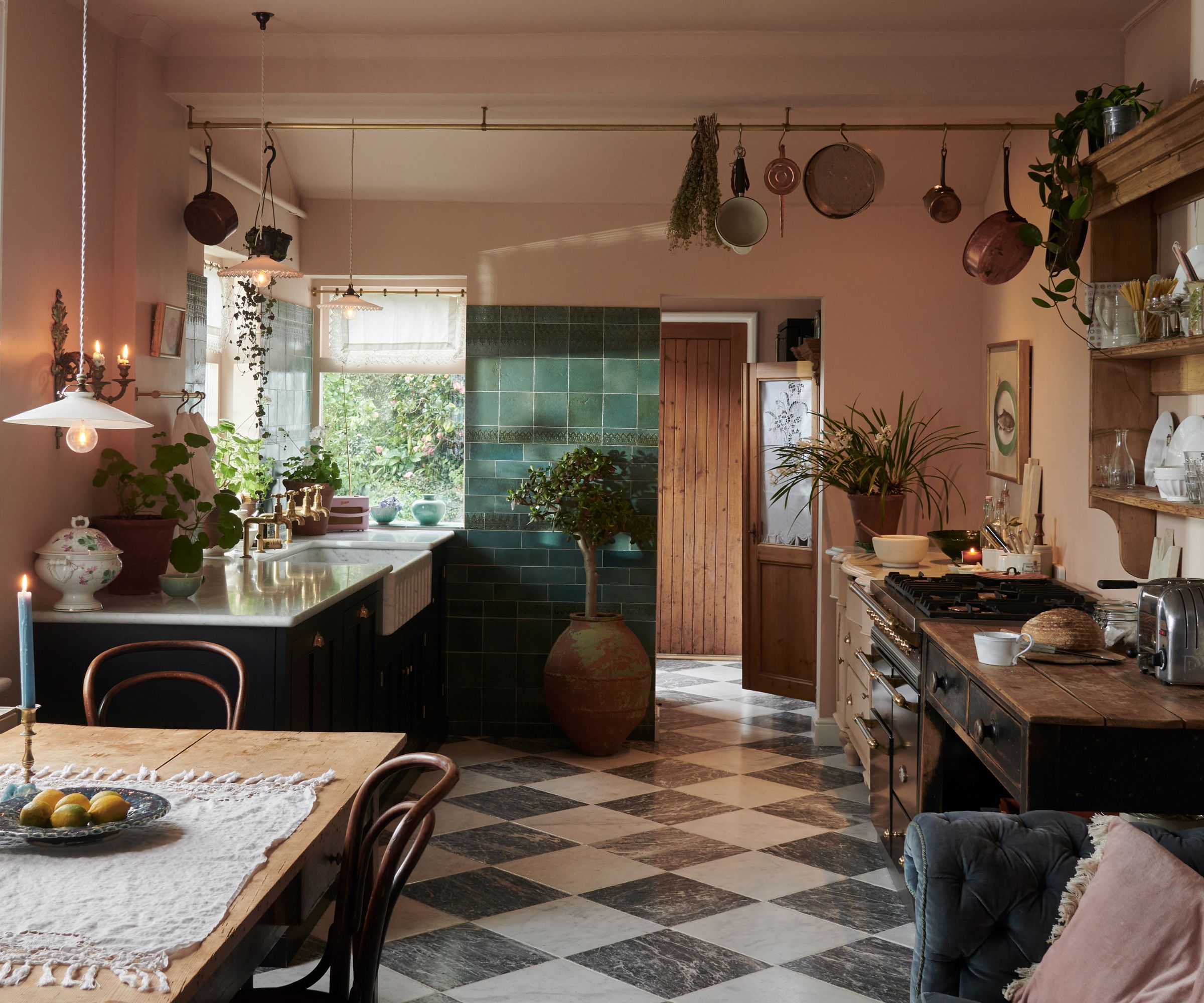
'By juxtaposing different materials or colors, you can achieve a dynamic and visually captivating look, adding depth and dimension to your kitchen. It's a sophisticated way to make a bold statement while maintaining a cohesive and harmonious design,' says Becky.
However, introducing two-tone countertops isn't a simple case of installing two different designs however they fit – styling them in a scheme in the right way is key to a successful design that feels elevated and complete.
'I am not a fan of two-tone countertops that are all at the same height. It looks as though the owner couldn't afford to replace all of the countertops with the same material, so they just replaced part of it. It makes the space look disjointed and incohesive,' says Natalie Rebuck, principal designer at Re: Design Architects.
What's the best way to introduce two-tone kitchen countertops?
From contrasting colors to visually interesting material pairings, there are plenty of ways to introduce two-tone kitchen countertops to your space. Here, interior designers share their favorite designs.
1. Pair them with wood finishes
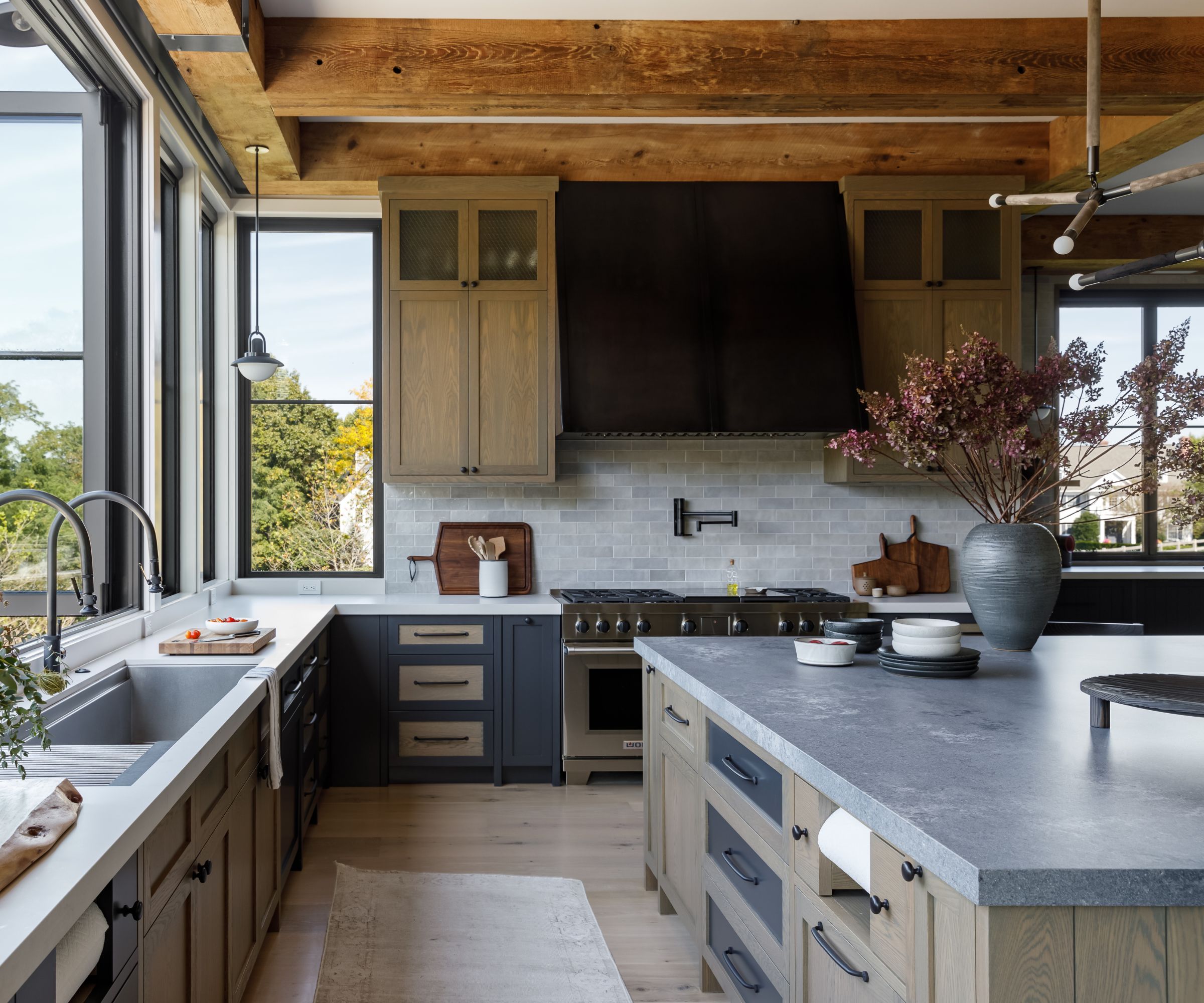
If your main reason for introducing two-tone kitchen cabinets is the feature a mix of textures and finishes, consider pairing stone with wood for a visually appealing contrast that still feels timeless.
'I would introduce two-tone countertops in a kitchen where there's a desire for a specific color foundation as the primary element, complemented by a rich wood stain as the secondary feature. This approach allows us to play with materiality in a contrasting way, resulting in truly unique and special spaces,' says Becky.
'By combining different tones and textures, we create a dynamic visual interest that elevates the overall aesthetic. Additionally, it provides an opportunity to incorporate more durable materials in high-traffic areas, ensuring longevity and functionality. This thoughtful blend of color and material not only enhances the kitchen's design but also caters to practical needs, making it both beautiful and resilient,' she explains.
2. Use a different countertop for the island
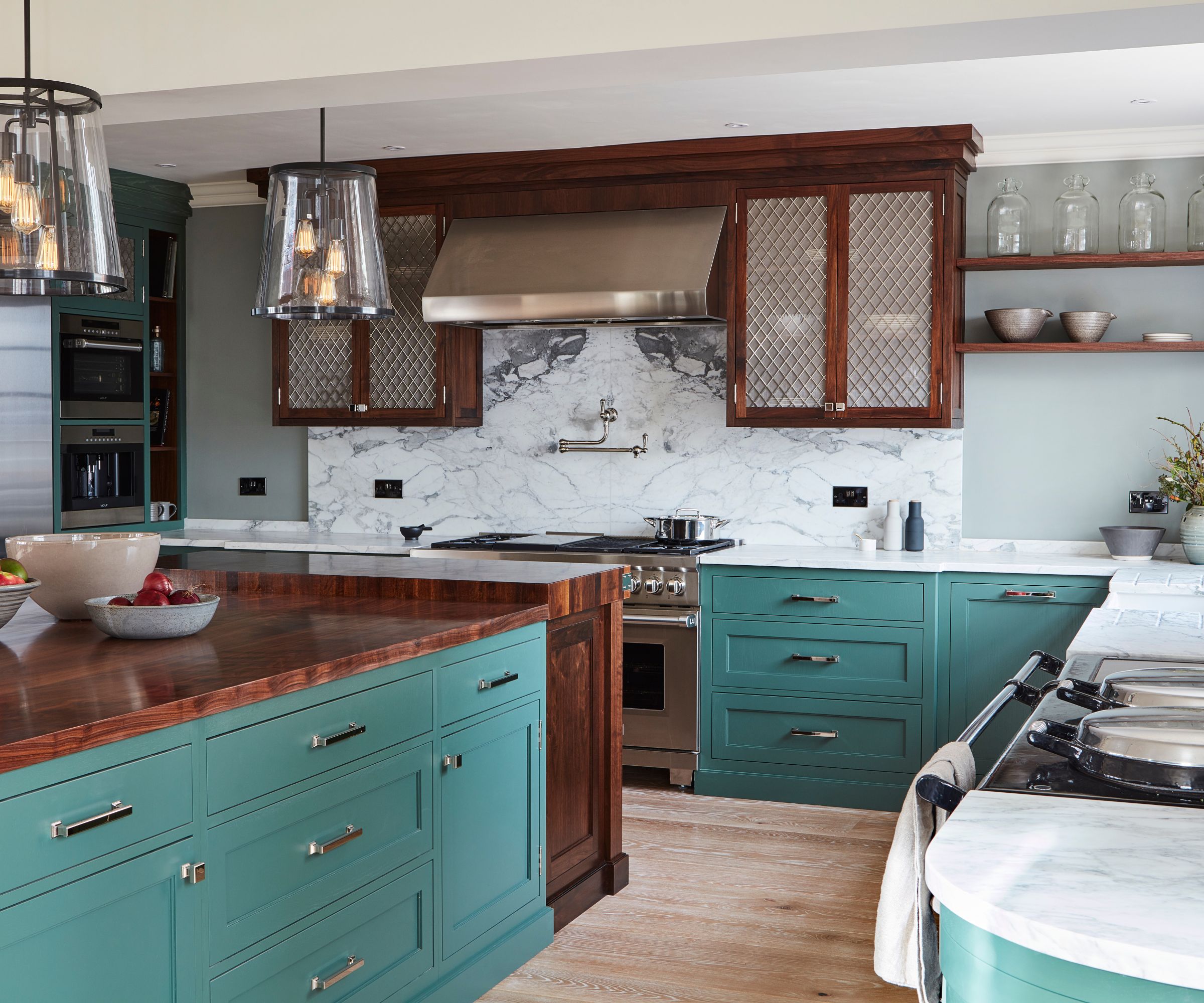
For a more simple approach to two-tone kitchen countertops, consider where in your kitchen feels the most balanced and eye-catching for a contrasting counter material or color that feels intentional and considered.
'In a large kitchen, it can look great to use a different material or color for the island countertop. This really helps to break up the space and create a statement,' says Jayne. This can create a truly cohesive scheme that works across several interior design styles.
This kitchen is a beautiful example, where white marble countertops have been used for the wall cabinetry, while a rich wooden countertop has been chosen for the island, creating a scheme that feels transitional and enduring.
3. Opt for a butcher's block in a rustic kitchen
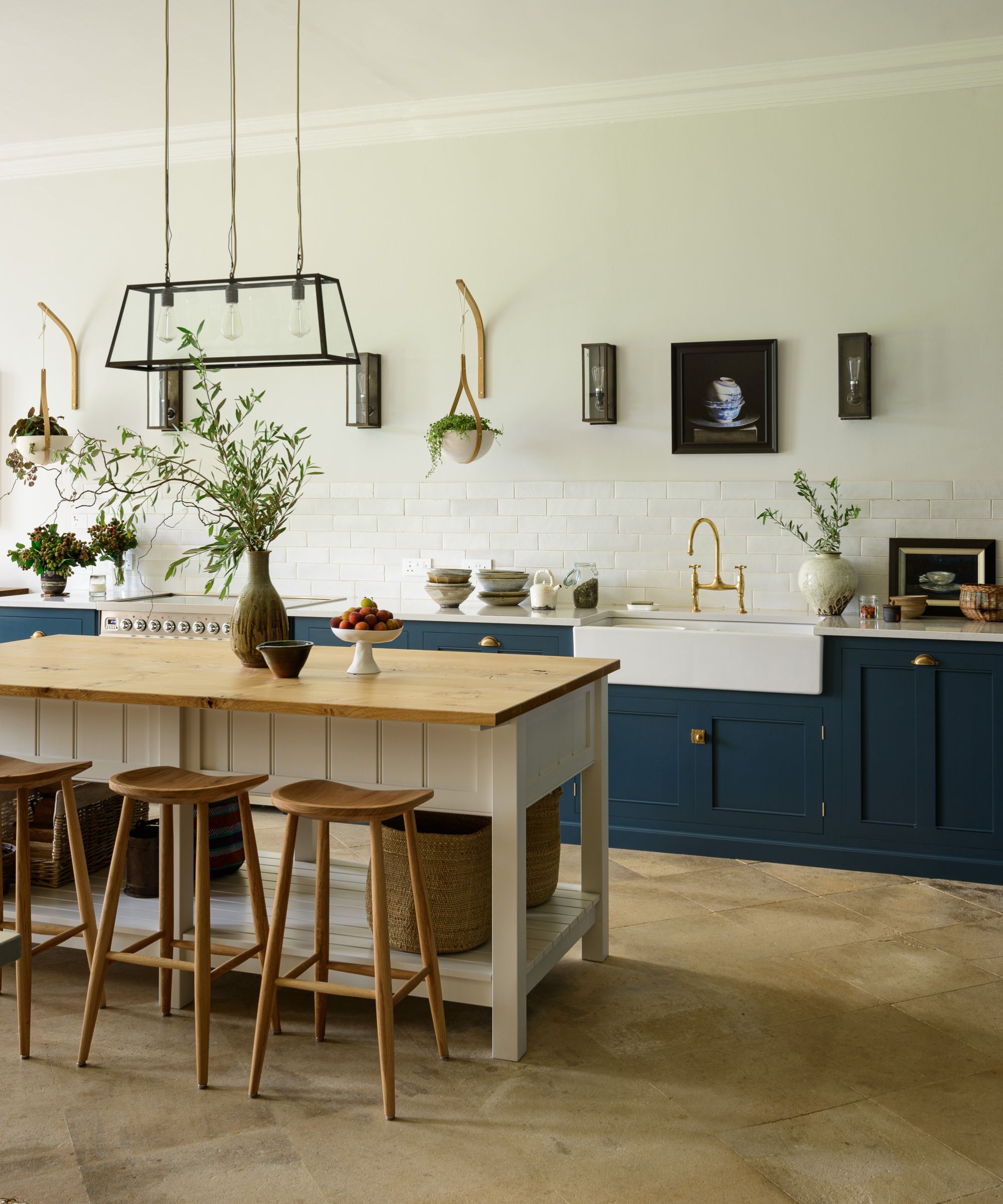
In some kitchens, the design style will really dictate how you introduce to-tone kitchen countertops. In a contemporary kitchen, you might opt for polished stone surfaces, but rustic kitchens call for something more authentic.
'I think there are occasional places where two-tone countertops work, like in a very rustic renovation where you have a butcher's block or wood counter for an island and a different stone countertop at the sides,' says Natalie.
'The other place I could see this working is if you have counter-height work surfaces, but want to have a bar-height countertop with stools. The bar counter height could work as a different material as a change in height,' she adds.
4. Use two-tone countertops to define zones
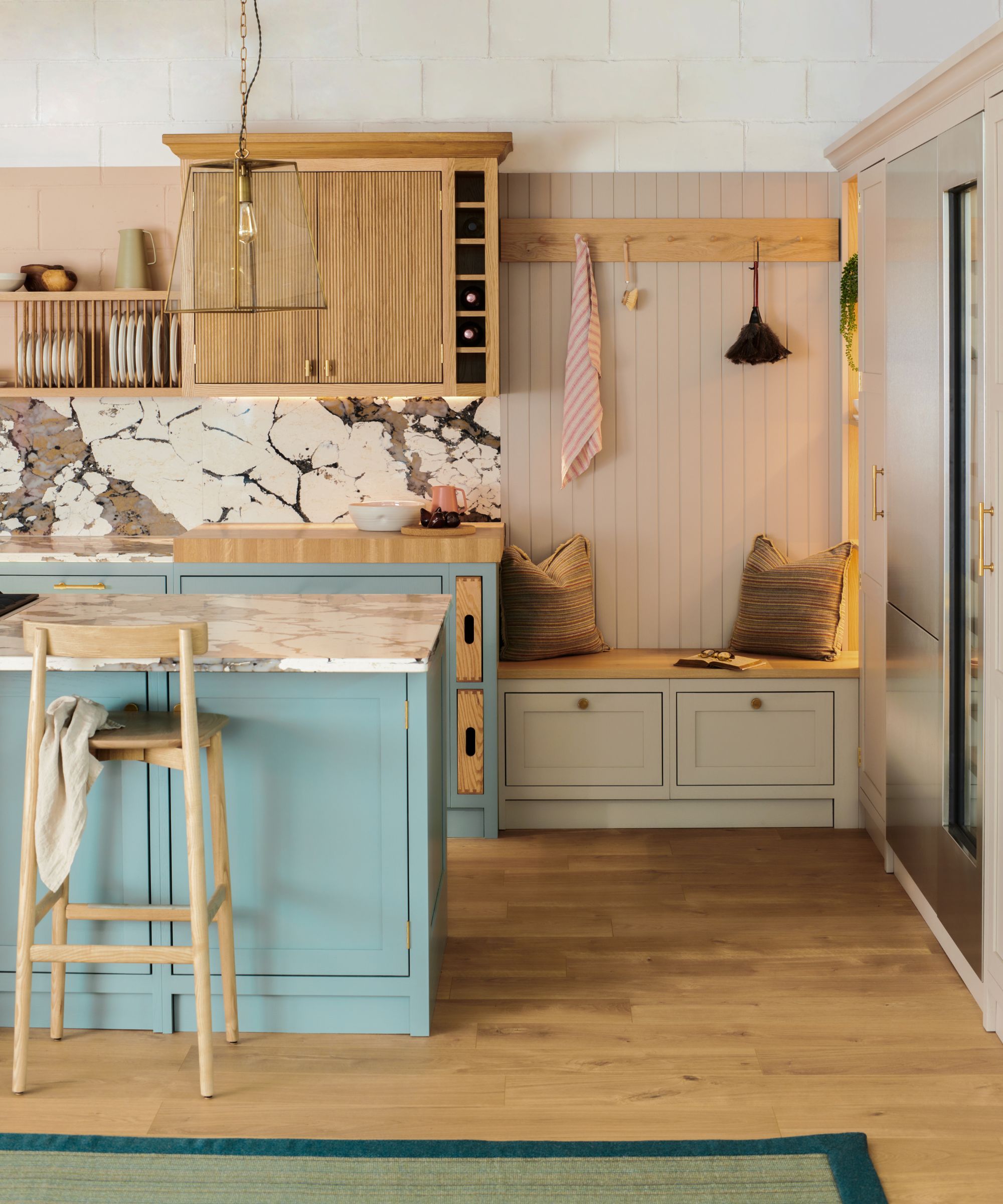
Two-tone kitchen countertops have plenty of aesthetic benefits, but they can also be used in a way that also blends practicality, too. Especially on a kitchen island that has to function for multiple uses, using two-tone counters to zone different areas can be really effective.
'It can be great to define work areas within a kitchen using two-tone worktops. We always love to introduce a different surface such as an end grain worktop to contrast with the quartz to differentiate the prep area which is super functional and also looks great,' says Jayne.
A prep area has been created at the end of this quartz kitchen countertop using a wooden surface. This clearly defines the work area without feeling wholly utilitarian. Using wood for this section of countertop ties in really well with the wooden wall cabinets above it.
5. Make a statement with contrasting colors
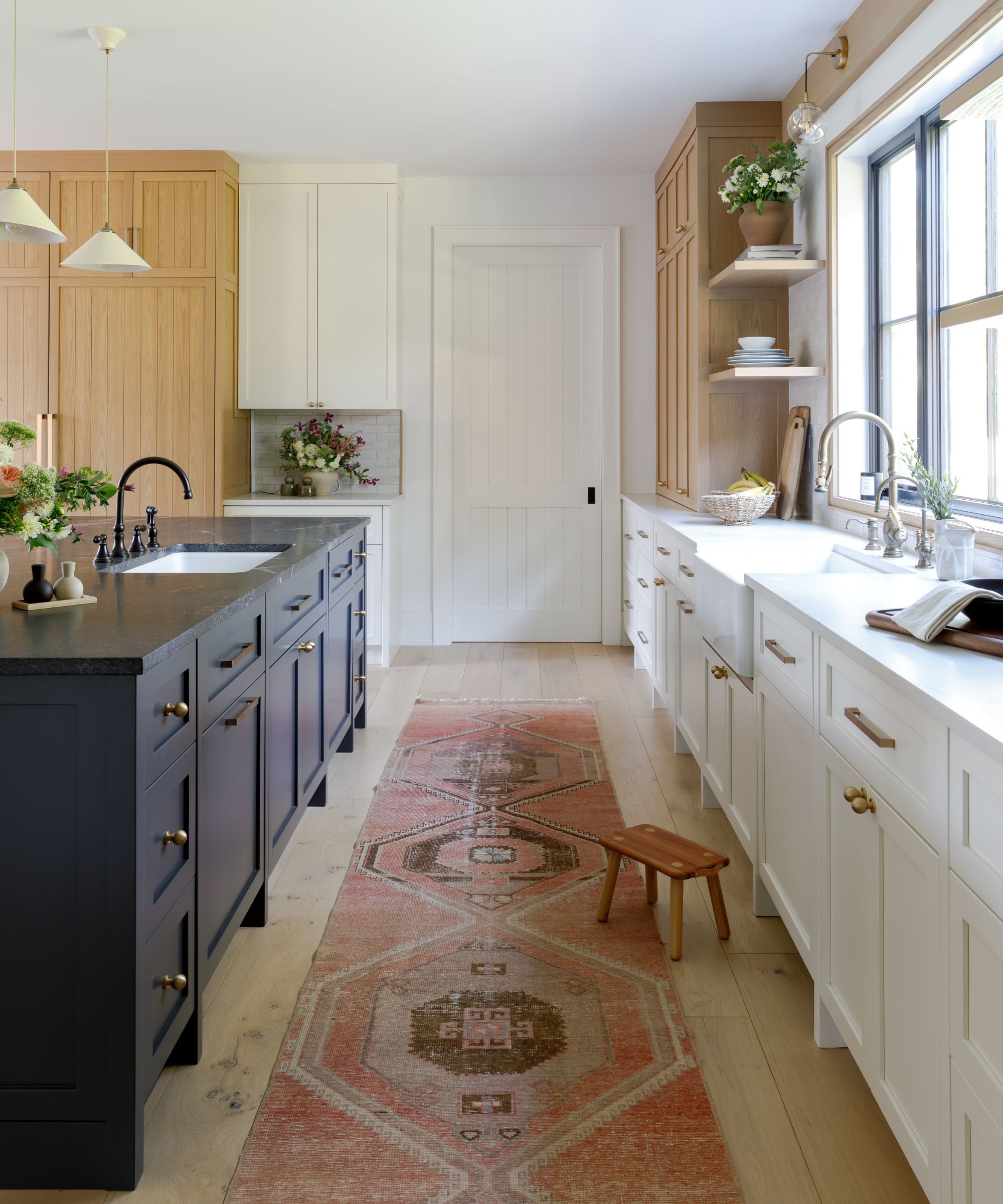
There are, of course, lots of subtle ways to introduce two-tone kitchen countertops, but for a scheme that packs a punch, opting for a strong contrast of color can aid a truly successful design.
'I love mixing natural stones like marble and quartzite with granites. This combination offers a timeless elegance and a rich, organic feel to the space. However, for homes with a lot of traffic, I typically encourage using manmade materials. The options in this category have come a long way, providing durability without compromising on aesthetics,' says Becky
We love to combine light and dark marbles or quartz such as a Carrara with Nero Marquina marble. This is a timeless and impactful look. Introducing timber to combine with a marble or quart adds an interesting layer and can help to soften the look, especially in a large space,' adds Jayne.
This kitchen is an eye-catching example, where the black countertop on the kitchen island creates a stunning contrast to the white countertops used on the wall cabinetry. To ensure the space still feels warm and inviting, wooden elements and a red runner have been introduced.
Two-tone kitchen countertops add character, interest, and dimension to scheme. Designed in the right way, they can really elevate your space and create a focal point in the room.







